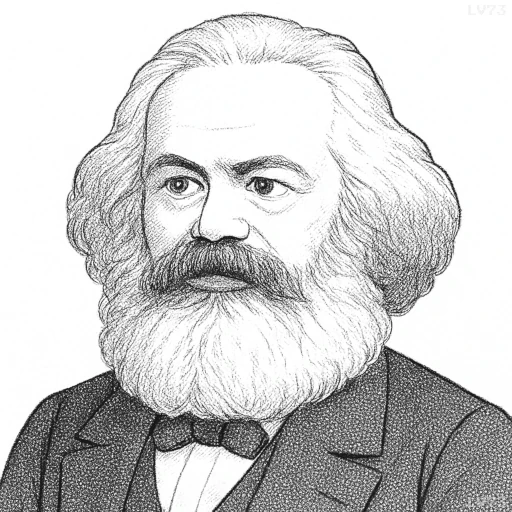“Religion is the opium of the masses.”

- May 5, 1818 – March 14, 1883
- Born in the Kingdom of Prussia (Germany)
- Philosopher, economist, political thinker
table of contents
Quote
“Religion is the opium of the masses.”
Explanation
This quote is a critique of religion and its role in society, particularly how it is used to suppress or placate the working class. The phrase “opium of the masses” suggests that religion functions similarly to a drug, providing temporary relief from the harsh realities of life without addressing the underlying causes of suffering. By offering a sense of comfort, it distracts people from the need for societal change and justice. In Marx’s view, religion was an instrument of control used by the ruling classes to maintain their power.
Historically, Marx made this statement during the 19th century, a period marked by the rise of industrial capitalism, which resulted in stark class divisions. Workers faced exploitation, long hours, and poor living conditions, while the elite enjoyed immense wealth. Marx saw religion as a tool that kept the working class subdued, offering false hope of a better life after death instead of encouraging people to challenge the social structures that caused their misery. He believed that in an ideal society, religion would no longer be necessary, as people’s needs would be addressed in this life, not the next.
In the modern context, this quote can still be seen as relevant in critiques of institutionalized religion. Some argue that in many societies, religion continues to be used to justify inequality, distract from political and economic struggles, or delay social progress. For instance, in some regions where poverty and oppression are widespread, religious rhetoric may emphasize the value of enduring hardship for future rewards, which can serve to uphold existing power structures. Marx’s idea also resonates with modern discussions about how certain ideologies—whether religious, political, or social—are used to pacify the population and prevent the kind of radical change he advocated for.
Would you like to share your impressions or related stories about this quote in the comments section?
